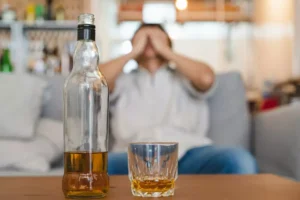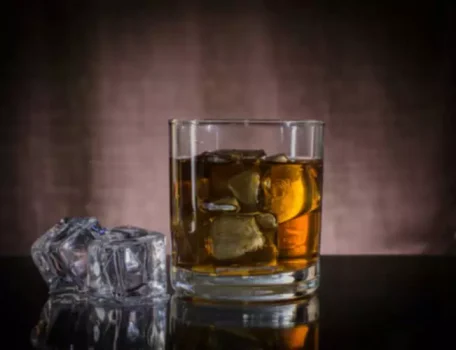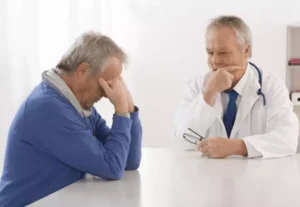
The underlying cause of exertion headaches is thought to be venous insufficiency (in which veins have problems moving blood back to the heart). A common cause of venous insufficiency is a heart valve problem, often unrecognized in the early stages. Tension headaches are one of the most common causes of pain in the back of the head, but there are other possible explanations.
Why Is Alcohol a Diuretic?
These replace not only fluid but also electrolytes like sodium and potassium, which are lost through sweating. Too much or too little sodium and potassium in your body can cause trouble. It’s also a good idea to avoid highly caffeinated and sweetened beverages. While coffee or energy drinks may provide a temporary boost, caffeine can exacerbate dehydration and worsen hangover symptoms, Routhenstein says.

What happens if you only drink soda and no water?
Dehydration can be mild, moderate or severe, depending on how much water the body is lacking. An early symptom to look out for is thirst, which is your body’s way of telling you that you need to drink water or other fluids. Eating certain foods and drinking certain beverages may dehydrate you by triggering increased urination does drinking cause dehydration and impacting your ability to maintain optimal fluid balance. Up to 80% of your water intake comes from fluids, which is why drinking fluids throughout the day is the most important factor in maintaining optimal hydration. Following a high salt diet can contribute to dehydration by increasing water loss through the urine.
Alcohol and energy drinks
- You can avoid dehydration by staying hydrated throughout the day.
- Without replenishing electrolytes, the body won’t be able to utilize the water you consume, leaving you dehydrated despite drinking plenty of fluids.
- But other things, like certain medications or diabetes, can increase the risk of chronic dehydration.
- Treatment may differ depending on the cause, your age, your overall health, and the severity of symptoms.
- If you take diuretics, antacids, laxatives and blood pressure medication, they may be designed to flush water and electrolytes out of your body.
- While it’s tempting to slurp down that iced mocha and think you’re properly hydrated, it’s not that easy.
“Typically, dehydration means a loss of fluid in the body,” says Kelly Unger, a certified personal trainer, nutritionist, and co-founder of Epic Fitness. While it’s typically caused by not drinking enough, other factors like certain illnesses or excessive sweating can throw your body out of whack. Given that dehydration can lead to some not-so-pleasant symptoms, including fatigue, you may wonder how to stay hydrated. The Institute of Medicine recommends adults consume 2.7 to 3.7 liters of water daily, depending on age and sex.
An increased intake of coffee may cause a diuretic effect that promotes dehydration. Research from 2017 indicates that low levels of caffeine ingestion do not cause dehydration. Participants who consumed over 500 milligrams (mg) of caffeine daily showed disruptions in fluid balance from the diuretic effects of coffee.
- Chronic heavy drinking can result in high blood pressure, which is a leading cause of kidney disease.
- They found that strength and endurance were worse for those who were purposely dehydrated than for members of a control group, even 24 hours after they were allowed to rehydrate.
- This process happens when we eat a lot of rice, cereal, potatoes and white bread; those are carbs that rapidly release glucose into the blood rapidly.
- Give your baby plenty of liquids, such as breastmilk or formula.
Dehydration: Signs, Symptoms, and Effects
Dehydration is caused by not drinking enough fluid or by losing more fluid than you take in. Fluid is lost through sweat, tears, vomiting, urine or diarrhoea. If severe dehydration is not treated immediately, it can lead to complications. This level of dehydration needs hospital treatment and you will be put on a drip to restore the substantial loss of fluids. If dehydration is ongoing (chronic), it can affect your kidney function and increase the risk of kidney stones.

Steps to Treat Chronic Dehydration

Follow drinking behaviors that are best for you, not what everyone else is doing. And above all, limiting your alcohol consumption in general is the best way to avoid dehydration. Eating foods with a high water content, like broth-based soups and gelatin, can also hydrate you without upsetting your stomach. Low blood sugar (hypoglycemia) is also a possible cause of Ozempic headaches.
Hangovers can be draining, but here are expert-backed tips to feel better faster. The other major but lesser-known function of fat is to provide water. As mentioned, fructose, a simple sugar, appears to have a key role in activating this survival switch that leads to fat production.
The National Academies of Science, Engineering and Medicine recommends drinking about 91 ounces, or 2.7 liters, per day. Several studies have evaluated the effect of dehydration on athletic performance, including on measures of endurance and fatigue. For example, a 2018 study published in Frontiers in Physiology found that combat sports athletes who were dehydrated reported feeling more fatigue and experienced reduced muscle-strength endurance. You should drink plenty of fluids to avoid becoming dehydrated.
